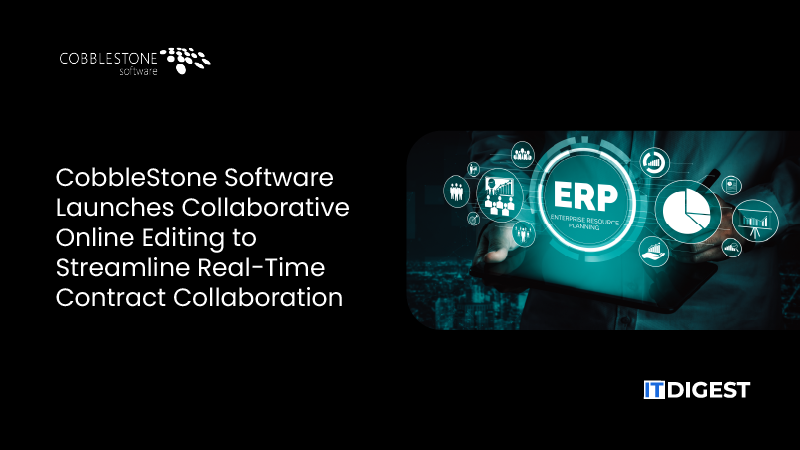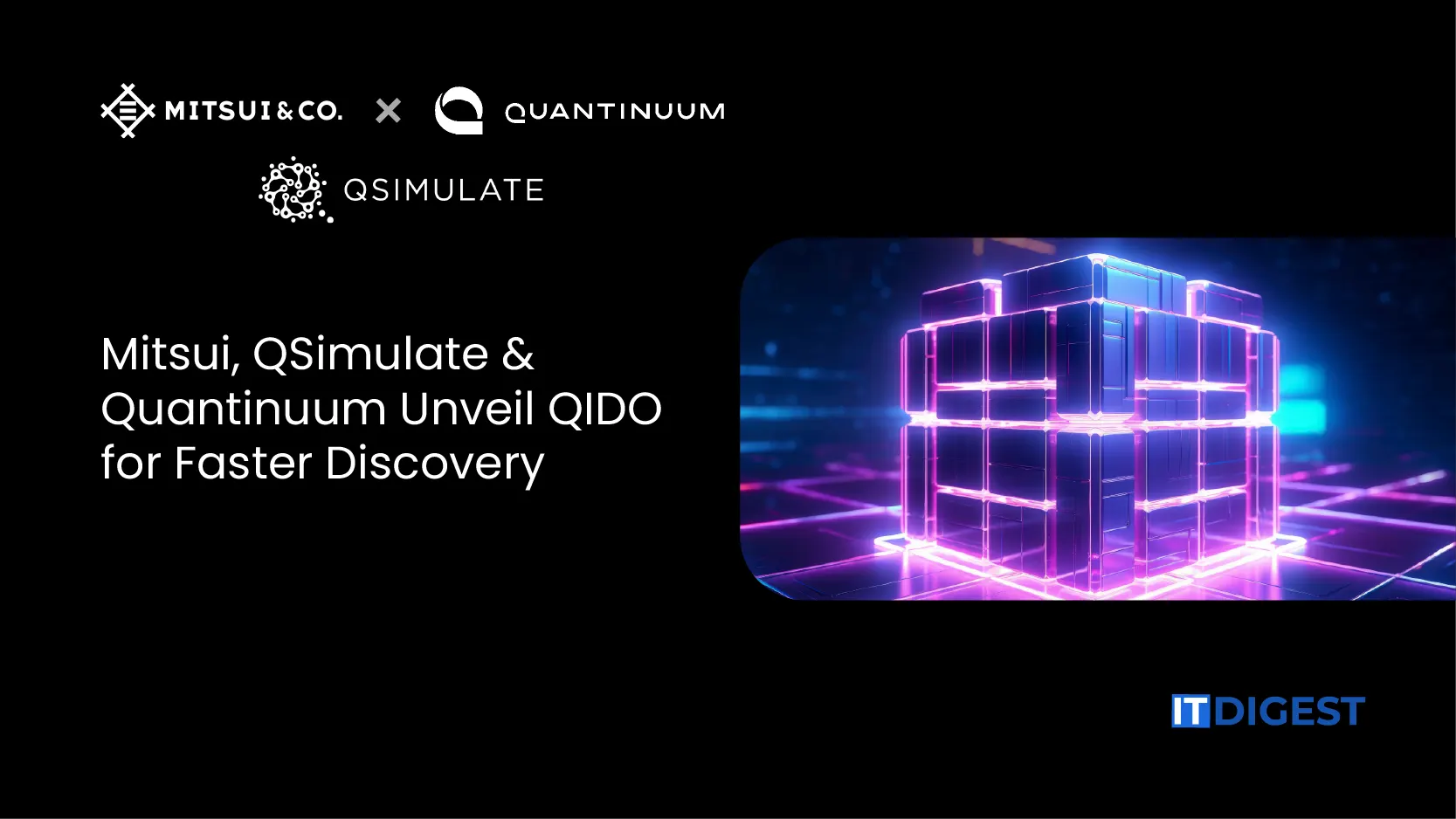QIDO integrates high-performance quantum chemistry workflows and quantum computing to shorten ‘molecule-to-market’ timelines across the pharmaceutical, energy, and chemical sectors, and beyond
Mitsui & Co., Ltd. (“Mitsui”), QSimulate, and Quantinuum have unveiled QIDO (Quantum-Integrated Discovery Orchestrator), a groundbreaking quantum-integrated chemistry platform designed to accelerate and reduce the cost of drug and materials development. By combining high-precision chemical reaction modeling with the power of classical and quantum computing, QIDO provides a next-generation solution for advancing innovation across multiple industries.
Engineered for commercial impact, QIDO simplifies quantum-classical hybrid workflows, enabling faster and more informed decision-making in early-stage R&D. The platform is positioned to deliver a strong competitive edge in sectors such as drug discovery, advanced materials design, and clean energy.
Proprietary Technology Driving QIDO
QIDO integrates QSimulate’s “QSP Reaction” software, capable of modeling thousands of atoms with state-of-the-art quantum chemistry methods, and Quantinuum’s “InQuanto” platform, which connects seamlessly with quantum emulators and Quantinuum’s high-performance quantum hardware. InQuanto™ has demonstrated up to 10x higher accuracy in molecular and materials simulations compared to open-source alternatives.
Makoto Koshida, General Manager, Quantum Innovation Department, Mitsui: “We take a market-needs-based approach, aiming to bridge the gap between providing practical features that help customers solve today’s challenges and preparing them for the coming quantum era. This approach enables customers to maximize its benefits from day one when quantum technology comes into its own.”
Toru Shiozaki, Ph.D., President & CEO, QSimulate: “Combining best-in-class quantum chemical simulation with deep quantum computing expertise, QIDO gives industrial chemists powerful, intuitive algorithms and tools to tackle complex chemical challenges with speed and accuracy. We are excited about the marriage between years of innovation in quantum chemistry automation and the future of quantum computation.”
Dr. Rajeeb Hazra, President & CEO, Quantinuum: “Adding the benefits of chemical accuracy and computational efficiency of quantum-native simulations in applications of chemistry is a key step forward in revolutionizing the economics of discovery in several significant end markets, such as pharmaceuticals and energy. Quantinuum is proud to offer the industry’s highest-performing quantum computers and widely used quantum chemistry software to enable this progress.”
Real-World Applications and Expansion
QIDO launches with a high-precision chemical reaction analysis module leveraging the active space approach, addressing multiple high-value use cases, including:
-
Catalyst and enzyme design – Accelerating clean energy, sustainable manufacturing, and advanced biocatalysis.
-
Reaction mechanism elucidation – Enabling deeper insights into pathways, intermediates, and excited states to enhance stability and performance.
-
Battery efficiency and storage – Improving safety, capacity, and longevity of next-generation energy storage solutions.
-
Sustainable materials – Supporting carbon capture, green ammonia, and hydrogen production.
Future updates will expand QIDO’s capabilities in areas such as drug discovery and battery innovation, emphasizing customer-driven co-creation to advance quantum-powered innovation.
Also Read: QuEra & Deloitte Partner to Boost Enterprise Quantum Adoption
Industry Leaders Share Early Feedback
As QIDO’s exclusive distributor in Japan, Mitsui spearheaded domestic testing with leading companies prior to launch.
Yu-ya Ohnishi, Ph.D., JSR Corporation: “The platform provided by QSimulate lowers the barriers to computation by simplifying input, automating error handling, and focusing output on necessary information, making it an integral tool in the daily workflows of synthetic organic chemists at JSR. With this platform now extended to support quantum chemistry calculations on quantum computers via InQuanto, it offers a path to an early quantum advantage.”
Takahiro Ohgoe, Ph.D., Panasonic Holdings Corporation: “This platform provides users with a tool to intuitively perform chemical reaction simulations through a graphical user interface. In the anticipated era of large-scale fault-tolerant quantum computing, materials simulation is regarded as a promising application domain. Integrated with quantum computing, this platform is expected to offer opportunities for early-stage validation in preparation for future breakthroughs.”
Akihiko Arakawa, Ph.D., Chugai Pharmaceutical: “This application offers an intuitive interface that combines user-friendly operability with clear, instantly interpretable result visualization—making reaction pathway exploration easier and more efficient than ever. At present, we recognize several technical challenges in applying the system to complex molecular calculations encountered in drug discovery and pharmaceutical research. As these challenges are steadily addressed, we expect this application to play a meaningful role in accelerating and optimizing the synthesis and process development of candidate molecules with complex chemical structures—ultimately contributing to innovation in drug discovery and the advancement of pharmaceutical development.”
Key Features of QIDO
QIDO democratizes access to advanced quantum chemistry by offering:
-
Automatic detection of reaction coordinates and transition states.
-
Quantum embedding and automated active space selection for strongly correlated systems.
-
Flexible computational methods to balance precision and cost.
-
Optimized energy calculations for reactants, products, and transition states using quantum hardware and emulators.
-
Quantum circuit visualization and detailed resource reporting.
With QIDO, Mitsui, QSimulate, and Quantinuum are setting a new benchmark in the use of quantum-powered chemistry platforms, helping industries accelerate breakthroughs in sustainability, energy, and life sciences.


































